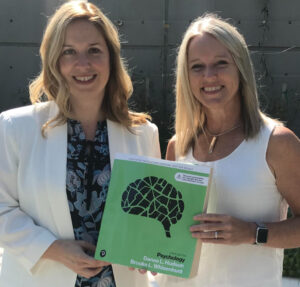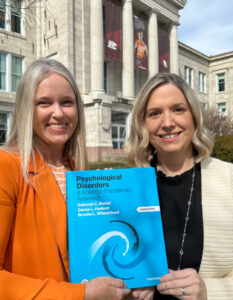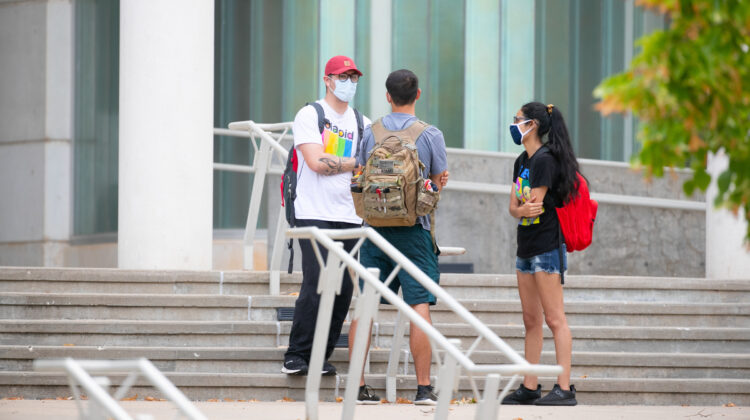What if you had the opportunity to write a textbook alongside your best friend?
Drs. Danae Hudson and Brooke Whisenhunt, professors in the department of psychology, did just that.

Not their first rodeo
Hudson and Whisenhunt’s first joint-textbook was “Psychology,” written specifically to be used for introductory psychology classes.
Over the course of redesigning PSY 121 (Introductory Psychology), Hudson and Whisenhunt built a relationship with Pearson. This led to them being asked to write their first textbook.
While initially hesitant, the duo saw the benefits of taking on this major project.
Sole authors, Hudson and Whisenhunt spent many hours and long nights putting together this extensive textbook and swore they’d never do it again.
Little did they know they’d be collaborating again, just a few years later.
Inside “Psychological Disorders”
They wrote “Psychological Disorders” for the “Abnormal Psychology” course.

Hudson and Whisenhunt were already using this textbook for their classes when Pearson asked them to write the fifth edition.
While textbooks usually go through a revision process every two-to-three years, “Psychological Disorders” hadn’t been updated in almost 10 years by the time it was handed off to Hudson and Whisenhunt.
The biggest change they made was the title, which was originally “Abnormal Psychology.”
“It was incredibly important to us that the textbook reflected the best tone and voice for today’s students and educators,” Whisenhunt said.
“Even changing the title was a huge overhaul because the entire first chapter was devoted to identifying what’s abnormal and what’s not.”
Standing out
Both “Psychology” and “Psychological Disorders” are integrated digital textbooks. This means they have interactive elements to create a richer learning experience for students.
“It was important for us to consider how a student would best learn and understand the material,” Whisenhunt said. “Students don’t tend to read their textbooks or come to office hours, so we tried to find a way around that.”
To the duo’s knowledge, their textbooks are the only ones in the country that have “adaptive pathways,” which are based around known, difficult concepts.
If a student is confused on a topic, they’re then directed to a video created and authored by Hudson and Whisenhunt to better explain the topic. This is done through using novel examples to simulate a discussion between a student and their professor.
Roughly 90% of students who’ve been in class with Hudson and Whisenhunt have expressed that they had a positive learning experience with the integrated digital textbooks. As such, they would like to see more in their future classes.
Best friends for over 24 years
Hudson and Whisenhunt have twin careers and have always had a special bond.
“Doing life and professional work together has been unreal. I can’t imagine doing it with anyone else,” Whisenhunt said. “We have cherished the opportunity to write these two books together.”
“This is intense work. I don’t think I could’ve done it without my person,” Hudson said.
They were lucky enough to be side-by-side throughout graduate school, being employed by Missouri State at the same time and even having offices that are next door to each other.
Bringing back an old tradition
A long-standing tradition for them in graduate school was getting fried chicken from Raising Cane’s and watching must-see television every Thursday night.
They’ve decided to celebrate their second textbook’s publication by going to the Cane’s in Springfield and revitalizing their tradition, nearly 20 years later.
“None of our families or children are invited,” Whisenhunt said. “We’re just going to hang out, eat chicken and watch television together.”


